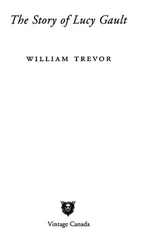Trevor, William - Children Of Dynmouth
Здесь есть возможность читать онлайн «Trevor, William - Children Of Dynmouth» весь текст электронной книги совершенно бесплатно (целиком полную версию без сокращений). В некоторых случаях можно слушать аудио, скачать через торрент в формате fb2 и присутствует краткое содержание. Год выпуска: 1976, Издательство: Penguin Publishing, Жанр: Старинная литература, на английском языке. Описание произведения, (предисловие) а так же отзывы посетителей доступны на портале библиотеки ЛибКат.
- Название:Children Of Dynmouth
- Автор:
- Издательство:Penguin Publishing
- Жанр:
- Год:1976
- ISBN:нет данных
- Рейтинг книги:4 / 5. Голосов: 1
-
Избранное:Добавить в избранное
- Отзывы:
-
Ваша оценка:
- 80
- 1
- 2
- 3
- 4
- 5
Children Of Dynmouth: краткое содержание, описание и аннотация
Предлагаем к чтению аннотацию, описание, краткое содержание или предисловие (зависит от того, что написал сам автор книги «Children Of Dynmouth»). Если вы не нашли необходимую информацию о книге — напишите в комментариях, мы постараемся отыскать её.
Children Of Dynmouth — читать онлайн бесплатно полную книгу (весь текст) целиком
Ниже представлен текст книги, разбитый по страницам. Система сохранения места последней прочитанной страницы, позволяет с удобством читать онлайн бесплатно книгу «Children Of Dynmouth», без необходимости каждый раз заново искать на чём Вы остановились. Поставьте закладку, и сможете в любой момент перейти на страницу, на которой закончили чтение.
Интервал:
Закладка:
It was impossible not to remember, after what Timothy Gedge had said. With his father and his mother, he’d often walked along the cliffs, by the golf-course. Dozens of times they’d gone in single file when they came to the narrow place, made narrow by a growth of gorse. ‘Careful, Stephen,’ they both seemed endlessly to have said. Often on the beach, when he’d run on ahead looking for flat pebbles to skim over the sea, he’d glanced back to find them walking with their arms around one another. ‘No one’s nicer than Daddy,’ his mother had once said.
On those walks, when Stephen was much younger, his father used to tell him stories about a family of moles he’d invented, elaborate adventures that went on for miles. On his mother’s birthday they didn’t go to the Spinning Wheel but to the Queen Victoria for lunch, because his father insisted. She’d sit there in the place of honour, black-haired and rather thin, beautiful on her birthday, as his father used to say. She’d laugh at things. She’d reach out towards them both and put her hands on theirs, smiling with her very white teeth. He always liked it when she wore a certain shade of lipstick, coral, not cherry. He liked it when she wore her green dress, with the belt that had a brass buckle.
His father insisted on the whole day being given up to her birthday, taking trouble, making her laugh. ‘Funny, being a bird-watcher,’ a boy called Cosgrave had once said and Stephen had made him take that back, twisting his arm until he agreed to. Once when he was alone with her he’d said it would be nice to have a brother, but she’d explained that it wasn’t possible. She’d hugged him, saying she was sorry. ‘Dear Mummy!’ his father said all of a sudden in the Queen Victoria, while the waiter was standing there spooning out peas.
Such memories crowded him. They came briefly, as moments rapidly hurrying, one bundled away by the next. But they were sharp as splinters, each stabbing on another’s wound. He clenched himself against them, tightening himself, determined not to be taken unawares. He wanted to be silent.
‘Now, don’t be silly, Kate,’ Mrs Blakey said firmly when Kate was helping her to make lemon meringue pie. ‘The boy don’t behave like a zombie for nothing. You’re both behaving queerly. D’you think I’m stupid or something?’
‘We don’t mean to, Mrs Blakey.’
‘If you’ve done something, tell me. If you’ve broken something –’
‘We haven’t broken anything.’
‘I can’t know if you don’t tell me, Kate.’
‘There’s nothing to tell.’
Mrs Blakey pressed her lips together. She said, coolly, that she could manage on her own in the kitchen now.
‘I don’t mind helping.’
‘You just run along now.’ She had been given a telephone number in France: Cassis 08.79.30, Les Roches Blanches, a hotel. It had been given to her in case an emergency arose, but it seemed to Mrs Blakey that the atmosphere which had developed in the house couldn’t be called an emergency. She wouldn’t know how to put it in any case, she wouldn’t be able to explain since it was all so hard to pin down. And it would cause a worry, ringing up France like that. For a start, it would cost a fortune.
‘Stephen,’ Kate called outside the closed door of his bedroom, but he didn’t answer.
He stayed awake and after midnight he went to the room which Kate’s mother had set aside for his father to write about birds in. It was on the ground floor, at the back of the house. A single window reached almost to the floor, looking over the garden. Against a faded wallpaper, striped in red and pink, were cases of butterflies and moths. In the corner by the door there was a small grandfather clock; from the mantelpiece, beneath a dome of glass, an owl stared. His father’s four mahogany filing-cabinets from Primrose Cottage were there, in pairs against two walls, between glass-fronted bookcases that had always been in the room. There was a green-shaded lamp on his mahogany desk, and a small white Olympia typewriter. There was a blotting pad with blue blotting-paper, and a wooden bowl with pencils and paper-clips and a fountain pen in it.
Stephen pulled down the blind and sat at his father’s desk, opening one drawer after another. He discovered notes on the Sand Martin and the Rufous-sided Towhee and the Isabel-line Wheatear and the Whiskered Tern. A professor in the University of Pennsylvania had written to ask about the distribution of the Upupidae Hoopoe in Britain. There was a bill from a firm of removals people, Messrs Hatchers Worldwide, and the final telephone account at Primrose Cottage, and the final electricity account, including the charge for disconnection. There were letters from solicitors and insurance people, and at the bottom of a drawer, tied together with string, there were letters of condolence.
There were other letters, tied together also, old letters that his mother had written in 1954, and in a stained buff envelope there were some his father had written to her. They were full of love and promises, and references to the future. Stephen read bits of them and then replaced them.
In another drawer, set aside from everything else, he found other letters that were full of love. They, too, referred to the future, to being at last together, and to happiness. There were fewer of them and they were shorter than his mother’s and none of them was dated beyond giving a day of the week. It’s hard to wait, one protested. Nothing makes sense without you, said another. These, too, he left as he had found them.
Light from the desk-lamp fell on his hands spread out on the blue blotting-paper, thin hands with thin fingers, only half the size they would become. His face in the gloom outside the glow of light was pale beneath his smooth black hair, his eyes intent yet empty of expression. He rose from the desk and turned on another light in the room. There was a book that had always been in Primrose Cottage, a thick book with a torn green dust-jacket. Fifty Famous Tragedies, it said on the jacket. He’d never seen his mother or his father reading it, but once he had opened it himself. He knew the kind of tragedies they were.
All the people Timothy Gedge had spoken of were there: Freddie Bywaters and Edith Thompson, Mrs Fulham, the beautiful Mrs Maybrick, Christie and Haigh and Heath, George Joseph Smith. There was Irene Munro, who had improved her complexion with Icilma cream before being battered to death for her handbag on a beach. There was a girl called Constance Kent, who had confessed to the murder of her small brother, fifty years ago, in a house not far from Dynmouth. On August 2nd, 1951, 48-year-old Mrs Mabel Tattershaw was spoken to by the man next to her in the Roxy Cinema, Nottingham. ‘I am,’ her murderer later remarked, ‘quite proud of my achievement.’ Owen Lloyd, a nine-year-old boy, drowned a four-year-old friend. ‘I won’t do it again,’ he promised at his trial. A man called Wilson murdered a Mrs Henrichson because she refused to rent him a room. Charlie Peace complained about the quality of the bacon at his execution breakfast. A chicken farmer called Edmund James Thorne fed the flesh of his wife to his fowls. In Brighton in 1934 the torso of a woman was found in a plywood trunk, wrapped in brown paper and tied with blind cord. Her murderer was never discovered. In Earl’s Colne on January 20th, 1961, Linda Smith went out to buy a newspaper and was later found strangled eighteen miles away, in a field, by a hawthorn hedge. Her murderer was never discovered, either.
Murder was committed in order to silence people, and out of jealousy and revenge and anger, and simply for its own sake. There was murder within marriage because a husband or a wife wanted life to be different and for one reason or another could find no other way to bring that about. There was murder for gain, and for the most trivial and pointless reasons, often for hardly any reason at all. Two adolescent girls in New Zealand had killed with a brick the mother of one of them just because they wanted to. A child of eight had killed for sweets. In Hull a man had poisoned his wife because she’d refused to sew buttons on to his clothes.
Читать дальшеИнтервал:
Закладка:
Похожие книги на «Children Of Dynmouth»
Представляем Вашему вниманию похожие книги на «Children Of Dynmouth» списком для выбора. Мы отобрали схожую по названию и смыслу литературу в надежде предоставить читателям больше вариантов отыскать новые, интересные, ещё непрочитанные произведения.
Обсуждение, отзывы о книге «Children Of Dynmouth» и просто собственные мнения читателей. Оставьте ваши комментарии, напишите, что Вы думаете о произведении, его смысле или главных героях. Укажите что конкретно понравилось, а что нет, и почему Вы так считаете.










